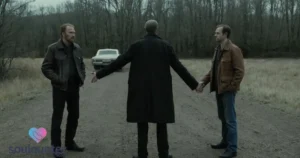“The mind-bending, terrifying world of Lovecraft with these unforgettable quotes that explore the depths of cosmic horror.”
H.P. Lovecraft’s writing often explores the mysteries of the universe, the fear of the unknown, and the insignificance of humankind in the face of cosmic entities. Known for his contribution to horror fiction, particularly the genre of cosmic horror, Lovecraft’s quotes often reflect a view of the universe where people people is but a small, fleeting part of an overwhelming, uncaring cosmos
1. “Fear of the Unknown“
Lovecraft’s most famous theme revolves around the fear of what cannot be understood or explained, often leading to a sense of dread and hopelessness.
- “The oldest and strongest emotion of people is fear, and the oldest and strongest kind of fear is fear of the unknown.”
- “We live on a placid island of ignorance in the midst of black seas of infinity.”
- “I have harnessed the shadows that stride from world to world to sow death and madness…”
- “That is not dead which can eternal lie, and with strange aeons even death may die.”
- “The most merciful thing in the world is the inability of the human mind to correlate all its contents.”
- “The true world is beyond our understanding, and all we can do is confront our limits in the face of its vast, unknowable power.”
- “In the beginning, there was darkness… and it never quite left.”
- “The mind of man is so limited, so fragile, and yet we press on into realms of incomprehensible vastness.”
- “I could not help feeling that they were evil things—mountains of madness whose farther slopes looked out over some accursed ultimate abyss.”
- “Man is but a speck, and the universe a vast, unfathomable void, one in which no purpose can be found.”
- “We are but fleeting moments in a vast, uncaring cosmos.”
- “Our knowledge is but a pale shadow of the true understanding of the world around us.”
- “The horrors that wait outside the known boundaries of existence are not for us to understand.”
- “Some things, perhaps, should remain beyond human reach.”
- “There are no answers in the stars, only void and mystery.”
- “It is the unknown horrors that give life its meaning, its terror.”
- “Fear is not in the shadows; fear is in what we cannot see or understand.”

- “Death is a small thing in the face of the unknown horrors that exist just beyond our perception.”
- “In our limited understanding, we imagine the universe as familiar, but its true nature is far more terrifying.”
- “Humanity’s greatest curse is our insatiable curiosity, which forces us into forbidden realms of knowledge.”
✧✧✧✧✧✧
2.”Cosmic Horror Lovecraft “

Lovecraft often conveyed a view of the cosmos as indifferent to human existence, where humanity is insignificant in comparison to the vastness of the universe.
- “We are but motes of dust in an uncaring universe, subject to forces far beyond our comprehension.”
- “The stars are too far to offer any real comfort, only a cold reminder of our insignificance.”
- “The universe is not only stranger than we imagine, it is stranger than we can imagine.”
- “The cosmos is indifferent to our suffering; it simply continues its endless cycle.”
- “Man’s feeble understanding can never fathom the true scale of the universe.”
- “What is man in the face of the infinite vastness of space and time?”
- “Time is a concept, but the universe moves far beyond our petty measures.”
- “The darker, larger forces at work around us are beyond all human understanding.”
- “The universe knows no good or evil, only indifferent forces that shape our existence.”
- “The stars in the sky mock our desire for significance in a world too vast to care.”
- “We are like ants, unaware of the true scale of the world and the universe.”
- “The universe is an empty, uncaring expanse that swallows all in its path.”
- “Nothing can stand against the slow and inevitable tide of time and space.”
- “In the cosmic scheme of things, man is a mere speck, easily obliterated by forces beyond understanding.”
- “To understand the universe is to understand that we are nothing but transient figures in an eternal void.”
- “The existential struggle of man is a futile one in the face of a universe that does not care.”
- “Humanity, in its arrogance, imagines it can control its destiny; the universe knows otherwise.”
- “Our minds are incapable of grasping the enormity of cosmic indifference.”
- “It is not the gods, but the cosmos itself that we must fear.”
- “Man’s greatest weakness is believing he is anything but a small flicker in the dark.”

✧✧✧✧✧✧
3. Madness and the Fragility of the Mind
Lovecraft’s stories often include themes of mental collapse as characters encounter forbidden knowledge or confront cosmic horrors.
- “The mind, once broken, can never be whole again.”
- “Madness is the only true reality when facing the unimaginable.”
- “There are things that can drive even the most rational mind to the brink of insanity.”
- “To see the true face of the universe is to lose your sanity.”
- “Our fragile minds were never meant to hold the knowledge of the cosmos.”
- “The deeper we delve into the unknown, the more fragile our minds become.”
- “Madness is not a curse, but a necessary defense against the horrors of the universe.”
- “Reality itself bends under the weight of the truths we are not meant to know.”
- “In the dark places of the earth, the mind finds solace in its inability to understand.”
- “One cannot gaze upon the abyss without being changed forever.”
- “The human mind was designed to ignore the truly horrific truths of the world.”
- “Madness is the price we pay for trying to understand the unknowable.”
- “Sanity is only a fleeting thing, easily lost in the face of the horrors around us.”
- “The knowledge of the universe is too great, too incomprehensible for any mind to bear.”
- “In the end, our minds were never built to confront the eternal.”

- “The boundary between sanity and madness is paper-thin when confronted with the vast unknown.”
- “The more you learn, the less you understand—and the more you fear.”
- “Madness is a gift, a shield that keeps you from the reality that would drive you wild,”
- “Those who seek truth often find it, only to find themselves lost in their own minds.”
- “It is not fear that drives us mad, but the realization of how insignificant we truly are.”
✧✧✧✧✧✧
Self-Control Quotes to Inspire Discipline and Growth
✧✧✧✧✧✧
4. The Futility of Human Endeavor
Lovecraft’s works often express the futility of human ambition and the arrogance of people in the face of a greater, indifferent universe.
- “Man’s greatest folly is believing that he controls his fate.”
- “Human ambition is a fleeting thing, no different from a moth to a flame.”
- “Our greatest achievements are but dust in the vast winds of time.”
- “The efforts of people to conquer the unknown are doomed to fail.”
- “Humanity’s pride lies in its belief that it can conquer nature, but the universe cannot be tamed.”
- “No matter what we achieve, it will never be enough in the face of the infinite.”
- “Our desires to understand are as insignificant as a single drop in the ocean.”
- “Humanity’s greatest accomplishments will ultimately be swallowed by time.”
- “Every victory is fleeting, and every loss is eternal.”
- “The universe has no need of our conquest, only our inevitable downfall.”
- “Man seeks to master the earth, but the earth will return to its own.”
- “We will never escape our true place in the cosmos.”
- “The stars do not care if we reach them, they will outlive us all.”
- “It is only in the face of certain defeat that man truly learns humility.”
- “The world will move on, long after humanity is forgotten.”
- “We are but a whisper in the eternal silence of the universe.”

- “No matter what we do, we will always be a fleeting moment in the eternal.”
- “We try to change the world, but the world remains unchanged.”
- “The universe moves forward, indifferent to our struggles.”
- “Humanity’s greatest flaw is believing that it can outrun time.”
✧✧✧✧✧✧
5.”Time and the Cosmos“
Time and the cosmos are central themes in Lovecraft’s work, often used to illustrate humanity’s powerlessness against the flow of eternity.
- “Time is not a line but a vast, swirling ocean, in which we are mere drops.”
- “The true horror lies in the knowledge that time is infinite, and we are but specks in it.”
- “The cosmos is both older and far more complex than we could ever comprehend.”
- “Time is a prison, and the key is lost in the dark corridors of the universe.”
- “We are but fleeting moments, temporary and insignificant in the face of eternal time.”
- “The universe existed long before us, and it will continue long after we are gone.”
- “Time and space are but illusions, fleeting and easily distorted by the true forces of the universe.”
- “The secrets of the cosmos are hidden not by distance, but by the ravages of time.”
- “Time bends and warps, and even the greatest minds cannot grasp its true nature.”
- “The stars are ancient, older than we can imagine, and they remain unchanged by the passage of time.”
- “Time holds no mercy, and all things will return to the void.”
- “In the vast stretches of the cosmos, time moves at its own pace, indifferent to our desires.”
- “The universe is an eternal void, and we are nothing but echoes in its endless darkness.”
- “The cycles of time repeat, but the true nature of the universe is always hidden.”
- “Time moves forward, relentless and unyielding, towards a final end.”
- “Humanity’s place in time is a brief flicker, quickly fading into the abyss.”
- “What seems like eternity is but a moment in the great expanse of time.”
- “The universe is ever-changing, and yet it remains forever the same.”
- “Time itself is a veil that hides the terrible truths of existence.”
- “In the end, time swallows all things, leaving nothing behind but shadows.”

✧✧✧✧✧✧
6. “Exploring Fear in Lovecraft’s Works”
- Lovecraft believed that the greatest fear is not of things we can see or understand but of those that lie beyond our comprehension.
- His characters often face horrors that defy logical explanation, leading to insanity or despair.
- The fear of the unknown drives much of his stories, whether it’s an ancient god or a mysterious artifact.
- Lovecraft’s writing suggests that humanity’s desire to understand everything will eventually lead to its undoing.
- Cosmic entities in Lovecraft’s works are often incomprehensible, emphasizing the futility of human efforts to understand them.
- His concept of “cosmic indifference” reflects a universe where humans are insignificant, and the unknown is vast and terrifying.
- Lovecraft explores the idea that the unknown is not just unknowable but actively hostile to our existence.
- His stories are often cautionary tales about the dangers of delving too deep into forbidden knowledge.
- The unknown forces in his stories are not merely physical threats but existential ones that challenge our understanding of reality.
- “Encounters with the strange and unknowable often drive Lovecraft’s characters to madness.”
- In Lovecraft’s writing, the fear of the unknown often links to humanity’s fragile psyche.
- Lovecraft presents the unknown as something that lies just beyond the edge of human understanding, constantly shifting and elusive.
- The unknown in Lovecraft’s works is not just an abstract concept but a living force that threatens to disrupt the world.
- He often uses elements of isolation and loneliness, making the fear of the unknown even more intense for his characters.
- Lovecraft explores how humans try to control the unknown through rituals and technologies, only to fail miserably.
- “His stories mirror the fear of the unknown and the inability to fully grasp the passage of time.”
- The presence of the unknown forces in his stories challenges the notion of a stable, ordered universe.

- Lovecraft often used isolation in his characters’ encounters with the unknown, making them even more vulnerable to despair.
- This work suggests that we cannot understand or conquer the unknown, as it will always elude us.
- The fear of the unknown in Lovecraft’s work serves as a metaphor for the existential terror of our own limitations.
✧✧✧✧✧✧
7.Lovecraft’s Influence on Modern Horror and Science Fiction
- Lovecraft’s concept of cosmic horror has influenced countless horror and science fiction creators, from writers to filmmakers.
- His themes of insignificance and the fear of the unknown have permeated genres far beyond horror.
- Modern science fiction explores the vastness of space and the insignificance of humanity, concepts Lovecraft touched on extensively.
- Films like The Thing and Event Horizon owe much to Lovecraft’s ideas about alien forces and the unknown.
- Lovecraft’s works laid the groundwork for the found footage genre in horror, where the horrors are often captured from an unknowable source.
- His stories have inspired a generation of writers who also deal with themes of isolation, madness, and cosmic forces.
- Popular culture reflects Lovecraft’s influence through references in movies, books, and games.
- The Cthulhu Mythos has become a central part of modern horror, even inspiring board games, video games, and role-playing games.
- Lovecraft’s focus on alien intelligences has influenced stories about extraterrestrials in both horror and sci-fi.
Modern horror stories often explore the idea of forbidden knowledge, as seen in films like Annihilation and The Cabin in the Woods. - Lovecraft’s idea of beings so vast and powerful that they are incomprehensible continues to shape modern horror.
- Modern dystopian fiction echoes his existential themes, such as humanity’s fragility in the face of a cold, indifferent universe.
- Writers like Stephen King and Neil Gaiman have cited Lovecraft as a major influence on their work.
- The concept of the unseen horror or eldritch terror is central to Lovecraft’s influence on modern storytelling.
- Lovecraft’s fear of space and the idea of infinite darkness echo through countless sci-fi works.
- The use of mystical rituals and occult knowledge is a theme that modern horror writers continue to explore.
- “Lovecraft’s work shapes how video games, like the Bloodborne series, portray fear.”
- Unreliable narrators, a feature in many of Lovecraft’s stories, is a device widely used in contemporary literature and media.

- His emphasis on psychological horror and the breaking down of the human mind has shaped the horror genre for generations.
- Lovecraft’s ability to evoke terror without directly showing monsters has inspired modern creators to lean more heavily on atmosphere and suggestion.
✧✧✧✧✧✧
8.The Role of Madness in Lovecraft’s Works
- Madness is a recurring theme in Lovecraft’s works, often a result of exposure to cosmic truths or forbidden knowledge.
- Characters in his stories often experience a gradual breakdown of their mental state as they encounter the inexplicable.
- The cosmic horror genre often links madness with the confrontation of terrifying forces beyond human understanding.
- Lovecraft’s stories suggest that the human mind cannot process the vastness of the universe.
- The exposure to knowledge that reveals the meaninglessness of existence often causes characters to lose their sanity.
- Many of Lovecraft’s protagonists are academic types, whose search for knowledge leads to their undoing.
- Madness in Lovecraft’s works often manifests as paranoia, hallucinations, or complete disillusionment with reality.
- The fragility of the human psyche is a major theme, with characters often unable to reconcile their beliefs with the horrors they encounter.
- Lovecraft frequently uses madness as a narrative tool to showcase the devastating impact of confronting cosmic truths.
- The unreliable narrator is a common trope in Lovecraft’s works, reflecting the disintegrating mental state of the character.
- Lucid dreaming and the blurring of reality and nightmare are often used to illustrate the onset of madness in Lovecraft’s characters.
- Some characters are driven to insanity due to the fear of the unknown, while others lose their minds trying to make sense of it.
- Lovecraft explores the theme of existential dread, where the realization of human insignificance leads to an overwhelming sense of despair.
- “Madness often portrays itself as a natural response to confronting the infinite and the incomprehensible.”
- Lovecraft uses madness as a tool to explore the fragility of the human mind in the face of overwhelming horror.
- Psychological horror in Lovecraft’s work delves into the fear of losing control over one’s own mind.

- Some characters go mad from exposure to ancient texts or rituals, while others are driven wild,by encounters with alien creatures.
- The theme of madness is not limited to individuals but extends to entire civilizations in Lovecraft’s universe.
- The breakdown of logic and rationality under the strain of confronting cosmic entities is central to the theme of madness.
- In Lovecraft’s works, madness serves as both a curse and a form of enlightenment, as characters come to understand the true nature of reality.
✧✧✧✧✧✧
Key Insight
1. What is Lovecraft’s main philosophical theme in his writing?
Lovecraft often focuses on cosmic horror, the idea that humanity is insignificant in the grand scale of the universe. His stories typically emphasize the fear of the unknown and the futility of human existence in the face of vast, incomprehensible forces.
2. How does Lovecraft view human knowledge?
Lovecraft believed that human knowledge is limited and fragile, often suggesting that the more we learn, the more we realize how much we do not understand. This realization is often linked to madness or despair in his works.
3. Why is Lovecraft so focused on the theme of madness?
In Lovecraft’s universe, the pursuit of forbidden knowledge and the confrontation with cosmic horrors often drive his characters to madness, as their minds cannot handle the vastness and the terror of the truths they uncover.
4. What does Lovecraft think about the future of humanity?
Lovecraft’s works argue that humanity is doomed to irrelevance in the vast, indifferent universe. His characters frequently face tragic fates, and humanity struggles to conquer the cosmos, only to find its efforts futile.
5. Is Lovecraft’s work relevant today?
Yes, Lovecraft’s themes of cosmic horror, existential dread, and the fear of the unknown resonate strongly with modern readers. His influence continues in literature, films, and games, particularly in genres related to horror and science fiction.
Conclusion
H.P. Lovecraft’s writing explores profound existential themes, pushing readers to confront the unknowable and the terrifying. Through his quotes, he delves into the fear of the unknown, the fragility of the human mind, the insignificance of people in the vast universe, and the eternal horror of time and space. Lovecraft’s work remains a cornerstone of modern horror, offering a chilling perspective on the human condition and our place in the cosmos.

Hi! I’m Ethan Matthews, a passionate author of soulquotez.com who loves crafting heartfelt wishes and messages to make every occasion special.












